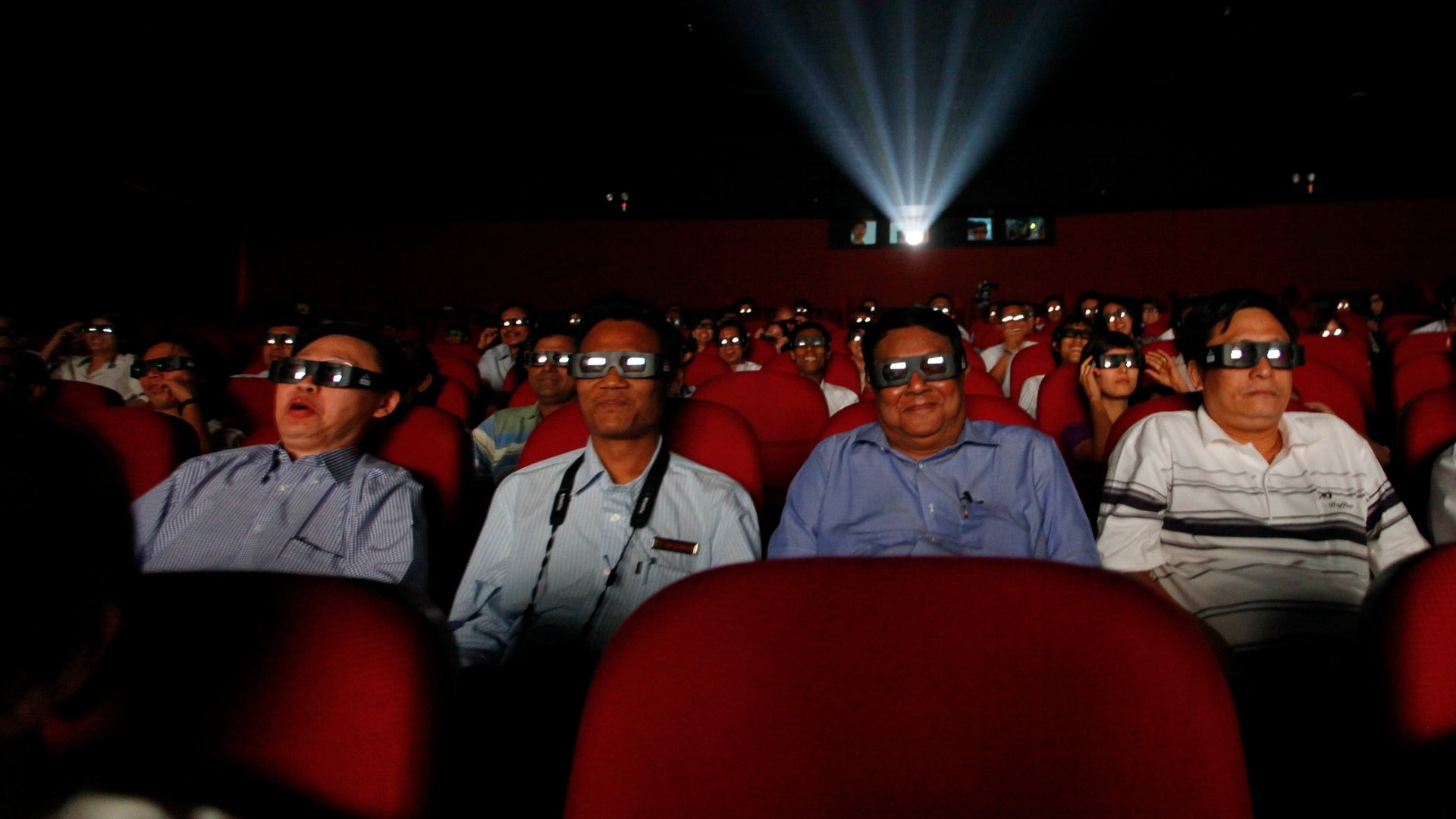Allowing people to tweet in movie theaters will ruin one of our greatest skills
This piece is a response to Hunter Walk’s blog post “Reinvent the Movie Theater: wifi, outlets, low lights, second screen experience.”


This piece is a response to Hunter Walk’s blog post “Reinvent the Movie Theater: wifi, outlets, low lights, second screen experience.”
Dear Hunter Walk,
Much as I’d like to dismiss your desire to watch movies in a theater while texting, iMBDing, and tweeting as bizarre and inconceivable, I’d say instead, you might simply want to consider moving to Colombia, India or any number of other countries in the world, where it’s perfectly normal to take a cellphone call in the middle of a movie.
I’m not going to take the bait and tell you that you’re a philistine. You’re obviously a cinephile, which for filmmakers like me is a wonderful thing. We love you. We love that you love movies. And no, I don’t think that your approach to watching them shows a fundamental lack of respect for the medium.
However, I do think it represents another kind of lack. I would wager that while you advocate for the opportunity to watch movies in half-light and half-doing ten other things at the same time, if I told you the universe was constructed such that you have to choose one or the other forever and always, and that choosing what you propose meant living in an alternate world where it was never ever possible to sink down into a movie theater seat with a big bag of popcorn and zero distractions as a carefully designed cinematic experience swept over you… well, I bet you wouldn’t want to give that up forever and always.
I know you weren’t proposing an either/or. But the point is, you know damn well how wonderful it is to lose yourself in a movie. No other art form (yes, movies are an ART form) transposes the human mind as cinema does (except maybe the experience-recorder in Natalie Wood’s final film, Brainstorm). The sense of losing ourselves in movies is not just fun; I would argue it’s a human SKILL, and one that’s important and worth developing.
When I made Maria Full of Grace, there was occasionally the question of how it was possible for a 30-something American white guy to understand and represent the experience of a 17-year-old female Colombian drug mule. My response: if it’s possible for the audience sitting in the theater to make the leap of consciousness, why wouldn’t it be possible for the filmmaker (or the novelist or the playwright) to make the same leap? Which is why I abide by the philosophy that while it’s valid that people should tell their own stories (write what you know, especially if the world out there doesn’t know it or see it the way you do), it should never be off limits for an artist to explore a world that is not his own. People can own experiences but that doesn’t give them proprietary rights on exploring those experiences in art. The only requirement is that when you explore another person’s experience you engage withit honestly, openly and truthfully.
I’m fairly certain you weren’t thinking in any of these terms when you wrote your blog post. But my point is this:
Cinema is more than losing ourselves in a fantasy; it is immersing ourselves in another experience, another point of view, another subjectivity. And in a world where the vast majority of human conflict is borne of individuals’ unwillingness to consider the point of view of the person on the other side of the divide, the human ability to imagine the experience of another is a skill we ought to exercise and develop above all others. What’s at stake is not just entertainment; it’s our prospects for co-existing as humans.
Like I say, not what you were trying to get into—I know. But I’d also say that all the tweeting (I see you tweet a lot) and texting and emailing hones the opposite tendency. It develops the inability to focus, to imagine, to slow down, to reflect, to be in the moment. And this tendency, the tendency our world is moving increasingly toward, must be combatted.
I am not one of those filmmakers who takes insult at your inability to appreciate the intricacies of the sound design and art direction that I and my team slaved months and years to put before you. But I do think you are woefully mistaken if you think experiencing Pacific Rim (which I’m proud to say, I watched in IMAX 3-D and fully appreciated!) amounts to nothing more than tracking its plot points (which, congratulations to you, were about the weakest thing in the whole movie).
Yeah, you can watch your movies with the lights on at home while you surf iMDB, tweet and do other things that I don’t want to imagine (let alone sit next to in a theater). But no, I’m not with you on encouraging the erosion of one of the greatest human attributes we have: to let go of the here-and-now and imagine our way into other realms, other experiences, other ways of being.
Respectfully,
Joshua Marston